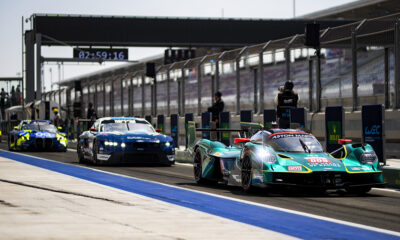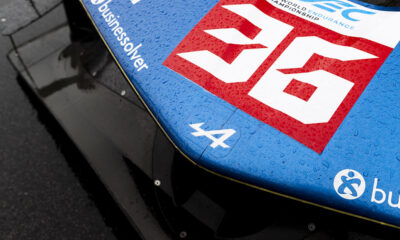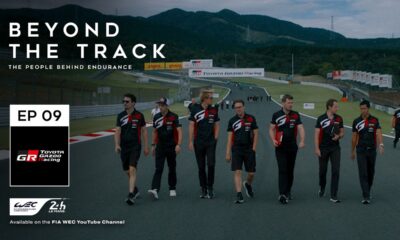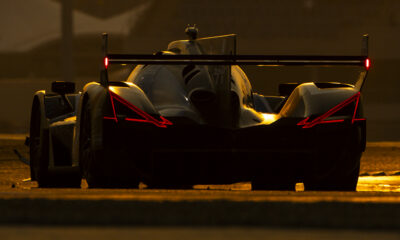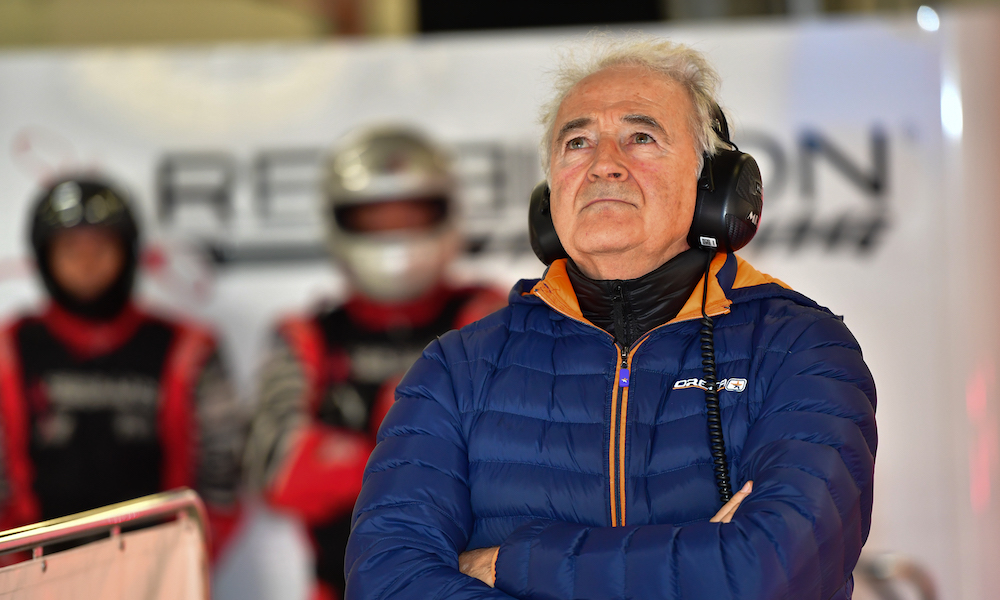
Photo: MPS Agency
ORECA is aiming to partner with an OEM manufacturer for a possible entry into the anticipated top-level FIA World Endurance Championship prototype class.
The French LMP1 and LMP2 chassis builder is continuing to evaluate the so-called Hypercar rules set, which was finalized during an ACO conference in Le Mans on Friday.
ORECA’s president Hugues de Chaunac told Sportscar365 that his company, which is currently active in LMP1 with Rebellion Racing, has clear ideas of how it will be represented on the grid.
Its technical director David Floury revealed in February that a series of preliminary design studies had been undertaken with regards to a potential program.
“The intention is that we come with an OEM because I think now the regulation allows us to convince one,” he said.
“We are in different discussions, so it could be a new one or one that is already in racing. We are having various discussions to try to convince one [to partner].
De Chaunac said he is “satisfied” with the finalized regulations for the Hypercar formula, which is yet to be given an official title.
The class is set to debut during the 2020-21 WEC season and has gone through several modifications since it was first publicly detailed at Le Mans last year.
In Friday’s press conference, it was confirmed that non-hybrid LMP1 cars will co-exist with hybrid machinery, while “deployment thresholds” for teams running electric motor units would be imposed to balance the competition.
“I am satisfied and I think it’s really a good decision,” he said.
“The key point is that we were expecting a decision for a long time and I pushed the ACO saying, ‘you have to decide if you go on the left side or the right side, so take a decision’.
“Now we know the direction, so it’s good. We know that we can do that with a very reasonable budget to do it, because there is a BoP. It’s not necessary to spend a lot of money.
“I think that with a smaller budget, we can convince OEM manufacturers to come and compete.”
It’s now understood that ORECA pushed the ACO for non-hybrid cars to be included in the updated regulations, which were originally only open to hybrid machinery.
However, de Chaunac suggested that the constructor would be willing to adjust its stance if a suitable offer from an OEM arrived.
“We will go non-hybrid. I think it was very important that the hybrid is not mandatory. That was really important for us,” he said.
“I think that the car manufacturers, due to the experience of Toyota, would prefer to come with a non-hybrid so they can compete inside the BoP window.
“But if the OEM would like to have a hybrid car, it’s not a problem. We are open.”
De Chaunac, whose company is one of the four regulated chassis-builders for LMP2, added that the pace of the secondary prototype class “is a problem that the ACO has to solve now”.
The target lap time for the WEC’s new top category at Le Mans is 3:30 in full race trim, while LMP2 cars currently lap the Circuit de la Sarthe in around 3:25.




















